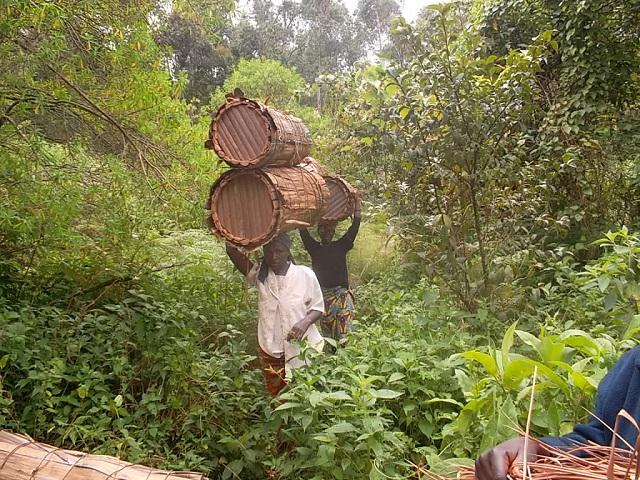Lawir Felix Yuven
Other projects
10 Jun 2015
Supporting Reforestation and Agroforestry Practices in the Kumbo Watershed, a Pathway for Livelihood Improvement and Biodiversity Sustainability
18 Nov 2016
Local Community Participation in the Sustainable Seed Bank Management for Agroforestry Practices and Ecological Restoration of the Kumbo Watershed
The overall aims of the project is to promote appropriate agroforestry practices and reforestation activities among small scale farmers in the Kumbo Watershed

In the last two decades, the rate of deforestation in the Kumbo Watershed area has almost tripled due to poor farming practices, notably the “slash-and-burn” agriculture, accounting for almost 85% of annually deforested surface areas. Additionally, uncontrolled fires, wood extraction, extensive grazing and the external demand for forest products have exacerbated deforestation and forest degradation. Because of the nature of land tenure and lack of technical information, small scale farmers and rural residents currently have limited incentives and knowledge to manage the forests properly or convert traditional farmland to managed agroforestry practices.
Generally, the soils in the watershed were fertile, but due to leaching through burning of Ankara (excessive burning of the top soil and organic matter to provoke quick uptake of potash), intensive cropping, application of chemical fertilizer and frequent bush fires, the soils have become deficient in nutrients, especially potassium and magnesium. Top soil is gradually degrading and farm yields have been rapidly declining. For instance, farmers who harvested about 20 tons of Potato solanum ten years ago, from farms along the stream valleys today rarely harvest 10 tons.
The 12 months project will promote appropriate agroforestry practices and reforestation activities among small scale farmers in the Kumbo watershed area in order to improve their income and food supply, while simultaneously improving the water supply potential of the watershed and the health of the environment as well as increasing the capacity of the farmers to adapt to climate change through the adoption of improved farming practices at the buffer zones of the watershed. Additionally, the project will promote permanent reforestation within degraded watershed and forest areas, regulating water flows, providing local communities with access to valuable non-timber forest products, and generate permanent carbon sinks that mitigate climate change.